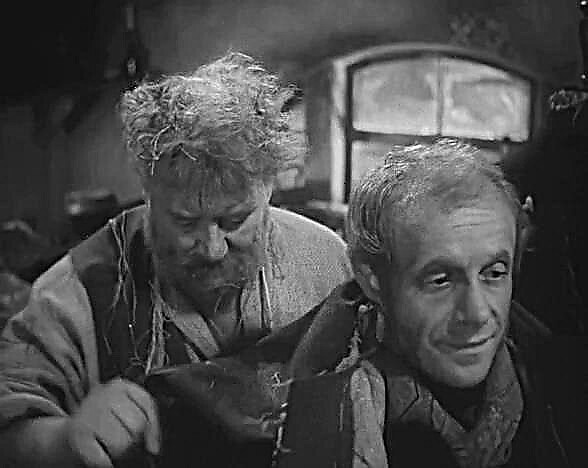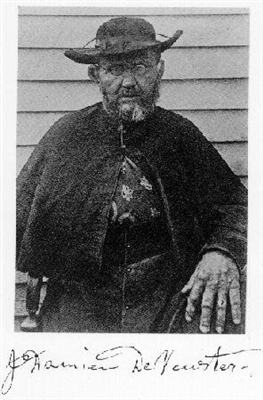On February 28, 1936, the third day after a military coup arranged by a group of young nationalist-minded officers dissatisfied with a too liberal government, Guards Lieutenant Shinji Takeeyama, unable to come to terms with the order of the emperor, who condemned the uninvited defenders and ordered the suppression of the rebellion, made harakiri own saber. His wife Reiko followed her husband's example and also took her own life. The lieutenant turned thirty-one, his wife twenty-three. Six months have not passed since the day of their wedding.
Everyone who attended the wedding or at least saw a wedding photograph admired the beauty of a young couple. On the wedding day, the lieutenant put a naked saber on his lap and told Reiko that the officer’s wife should be prepared for the possibility that her husband could die, and even very soon. In response, Reiko took out the most precious thing handed to her by her mother before the wedding, a dagger, and silently laid the naked blade on her lap. Thus, a silent agreement was concluded between the spouses.
Young lived in peace and harmony. Reiko never argued with her husband. On the altar in the living room of their house was a photograph of the imperial family, and each morning the couple bowed low to the portrait.On the morning of February 26, when he heard the alarm, the lieutenant jumped out of bed, dressed quickly, grabbed the saber and left the house. Reiko learned about what happened from radio messages. Among the conspirators were her husband's best friends. Reiko eagerly awaited the imperial rescript, seeing how the rebellion, which at first was called the "movement for national revival", gradually adheres to the infamous stigma "rebellion". The lieutenant came home only on the twenty-eighth evening. His cheeks sank and darkened. Realizing that the wife already knows everything, he said: “I did not know anything. They did not call me with them. Probably due to the fact that I recently got married. " He said that tomorrow they would announce the imperial rescript, where the rebels would be declared rebels, and he should lead his soldiers on them. He was allowed to spend this night at home, so that tomorrow morning he would participate in the suppression of the rebellion. He could not disobey his superiors or go against his friends. Reiko realized that her husband decided to die. His voice was firm. The lieutenant knew that there was no need to explain anything else: the wife understood everything. When he said that he would make hara-kiri at night, Reiko replied: “I am ready. Let me follow you. ” The lieutenant wanted to die first.
Reiko was moved by her husband's confidence. She knew how important it was for her husband that the ritual of his death pass flawlessly. Harakiri must certainly have a witness, and the fact that he chose her for this role spoke of great respect. A sign of confidence was the fact that the lieutenant wanted to die first, because he could not verify whether she would fulfill her promise.Many suspicious husbands first killed their wives, and then themselves. Young spouses were seized with joy, their faces lit up with a smile. Reiko seemed to have another wedding night ahead of them. The lieutenant took a bath, shaved, and looked in the face of his wife. Not seeing in him the slightest sign of sadness, he admired her restraint and again thought that he was not mistaken in the choice. While Reiko was taking a bath, the lieutenant went up to the bedroom and began to think about what he was waiting for - death or sensual pleasure.
One expectation layered on another, and it seemed as if death was the object of his lust. The realization that this night of love was the last of their lives gave their enjoyment a special refinement and purity. Looking at the beautiful wife, the lieutenant was glad that he would die first and did not see the death of this beauty. Getting out of bed, the couple began to prepare for death. They wrote farewell letters. The lieutenant wrote: “Long live the Imperial Army!” Reiko left a letter to her parents, where she apologized to them for leaving the life before them. Having written letters, the couple approached the altar and bowed in prayer. The lieutenant sat on the floor with his back to the wall and laid the saber on his knees. He warned his wife that the sight of his death would be difficult, and asked her not to lose courage. Death awaiting him is no less honorable than death on the battlefield. For a moment, it even seemed to him that he would die in two dimensions at once: both in battle and in front of his beloved wife. This thought filled him with bliss. At that moment, his wife became the personification of the most sacred: the Emperor, the Motherland, the Battle Banner.
Reiko, watching her husband prepare for death, also thought that there was hardly a more beautiful sight in the world.The lieutenant drew the blade and wrapped it in white cloth. To check if the saber is sharp enough, he first slashed himself on the leg. Then he stuck a point in the lower left abdomen. He felt a sharp pain. Reiko sat next to her and restrained herself so as not to rush to her husband for help. The blade was stuck in the insides, and it was difficult for the lieutenant to lead him to the right. When the blade reached the middle of the abdomen, the lieutenant experienced a surge of courage. Bringing the blade to the right side of the abdomen, the lieutenant growled in pain. With the last effort of his will, he directed the blade into his throat, but could not get into it. His strength was running out. Reiko crawled to her husband and widened the gates of his tunic. Finally, the tip of the blade pierced the throat and came out under the back of the head. A fountain of blood spattered, and the lieutenant fell silent.
Reiko went downstairs. She put makeup on her face, then went to the front door and unlocked it: she didn’t want their bodies to be discovered only when they were already decomposing. Going upstairs again, she kissed the dead husband on the lips. Sitting next to him, she drew a dagger from her belt and lightly touched his tongue. The metal was sweet. The young woman thought she would soon connect with her lover. There was only joy in her heart. It seemed to her that she felt the sweet bitterness of the Great Sense, in which her husband believed. Reiko put the dagger to her throat and pressed it, but the wound was very small. She gathered all her strength and drove a dagger into her throat to the very hilt.












